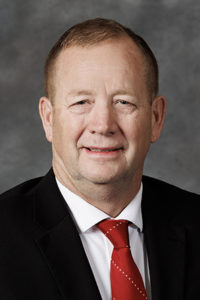Reduced continuing ed requirement for rural officers proposed
The number of hours of annual training required for law enforcement officers in less populated Nebraska counties would decrease under a proposal considered March 20 by the Judiciary Committee.

Currently, all Nebraska law enforcement officers are required to complete 32 hours of annual training. LB73, sponsored by Niobrara Sen. Barry DeKay, would reduce that number to 20 hours for officers in counties with a population of less than 40,000 residents.
A law enforcement officer who is not employed but wishes to maintain professional status would be subject to the requirement of their county of residence.
DeKay said the annual training requirement was increased by lawmakers in 2021, partly to improve law enforcement standards in Nebraska following civil unrest in response to police violence across the country during the summer of 2020.
Over the last four years, the expanded training requirement has negatively impacted many rural agencies, he said, where a week-long absence for training can reduce the local law enforcement presence significantly.
“Lancaster County, Douglas County and the State Patrol have been able to handle this transition to the 32-hour requirement relatively well,” DeKay said. “This is not necessarily the case in parts of greater Nebraska where one person can represent a tenth or a quarter of the available personnel of a law enforcement agency.”
DeKay brought an amendment to the hearing at the request of the Nebraska State Patrol that would keep the 32-hour requirement for state troopers.
Testifying in favor of the proposal, Dodge County Sheriff Don Henery said law enforcement in his office already is stretched thin. Training is important and 20 hours is manageable, he said, but the 32-hour requirement has meant overtime and the strain that comes with it.
“[Overtime] is not just a budgetary thing, it’s a family thing,” Henery said. “Every time my guys are on overtime away from their family, that family pays a price too.”
Brent Deibler, Sheriff of Brown County, also spoke in favor of LB73. Smaller counties already are struggling to retain staff, he said, so putting additional requirements on good employees can create stress and hinder team-building efforts.
“When you have an agency as small as mine — if I was fully staffed, I’d have five full-time deputies, I currently only have three — when we’re training as a group somewhere, somebody has to stay home to take calls and guard the county,” Deibler said.
No one testified in opposition to the proposal and the committee took no immediate action on it.


